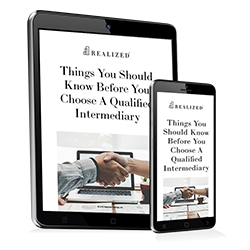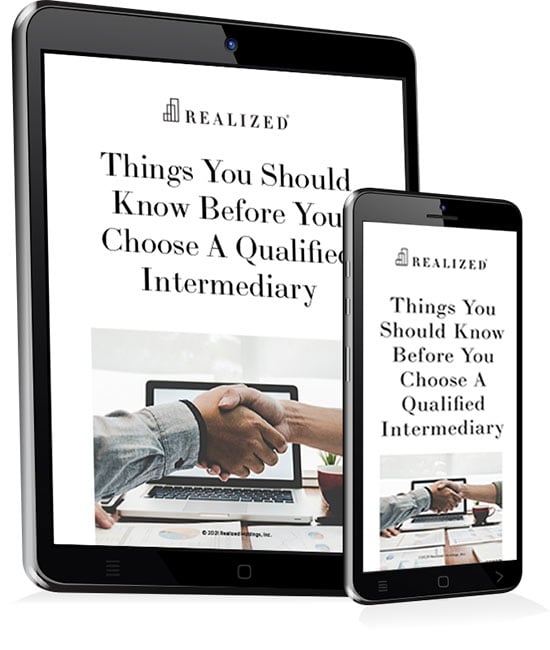
We discuss the topic of qualified intermediaries frequently at Realized Holdings, and for very good reason. The QI (also known as a facilitator or accommodator) can mean the difference between a successful 1031 exchange, and one that might fail and be challenged by the IRS. A reputable, experienced qualified intermediary must follow certain regulations, responsibilities, and obligations. To understand the activities of this entity requires an understanding of why it’s involved, in the first place.
A Disinterested Third Party
One purpose of a like-kind exchange is to defer taxes on capital gains from the sale of a real estate asset. But the IRS is adamant that, if the exchanger wants to defer those taxes, the proceeds from the sale of a relinquished property must be funneled directly to the replacement property. More often than not, there is a gap of time between the closing of the property being sold, and the asset being acquired.
As such, proceeds need to be handled by a disqualified entity -- in other words, a person or company that doesn’t have any kind of relationship, whatsoever, with the exchanger. This entity, the QI, can’t be a family member, or related in any way to the exchanger. Nor can the QI be an employee or employer, or agent, of the exchanger. Nor can the exchanger take on the role of QI. That qualified intermediary is required, by law, to be a disinterested third party in the exchange.
When it comes to “regulations,” the QI doesn’t have to be in the chain of title. Nor does it require licensure. Per the IRS, the only qualifications to qualify as a qualified intermediary is that the entity not be disqualified, based on the above section. If the QI is in any kind of relationship with the exchanger, the IRS could treat the relinquished property sale as a taxable event.
The QI Activities
With an understanding of what a qualified intermediary is, let’s now discuss what it does. Basic QI responsibilities are as follows:
- Enters into a written agreement with the exchanger, to take on responsibility of the exchange process.
- Sells the relinquished property on the exchanger’s behalf, and holds the process from that sale in a separate account
- Acquires the replacement property, also on the exchanger’s behalf, then transfers the deed to that entity
- Prepares the legal documents, in accordance with IRS rules and regulations, to ensure a seamless like-kind exchange
- Helps alleviate potential risk, should an error occur during the exchange
Finding the Right QI
Pinpointing an effective qualified intermediary requires a great deal of due diligence. Experience counts for a great deal, as does information about how funds will be held, what insurance the entity carries, and internal controls. Even if the QI is recommended, doing research is a must. Failure to take the proper steps to ensure that the qualified intermediary understands its obligations and responsibilities could mean an unintended tax bill.



